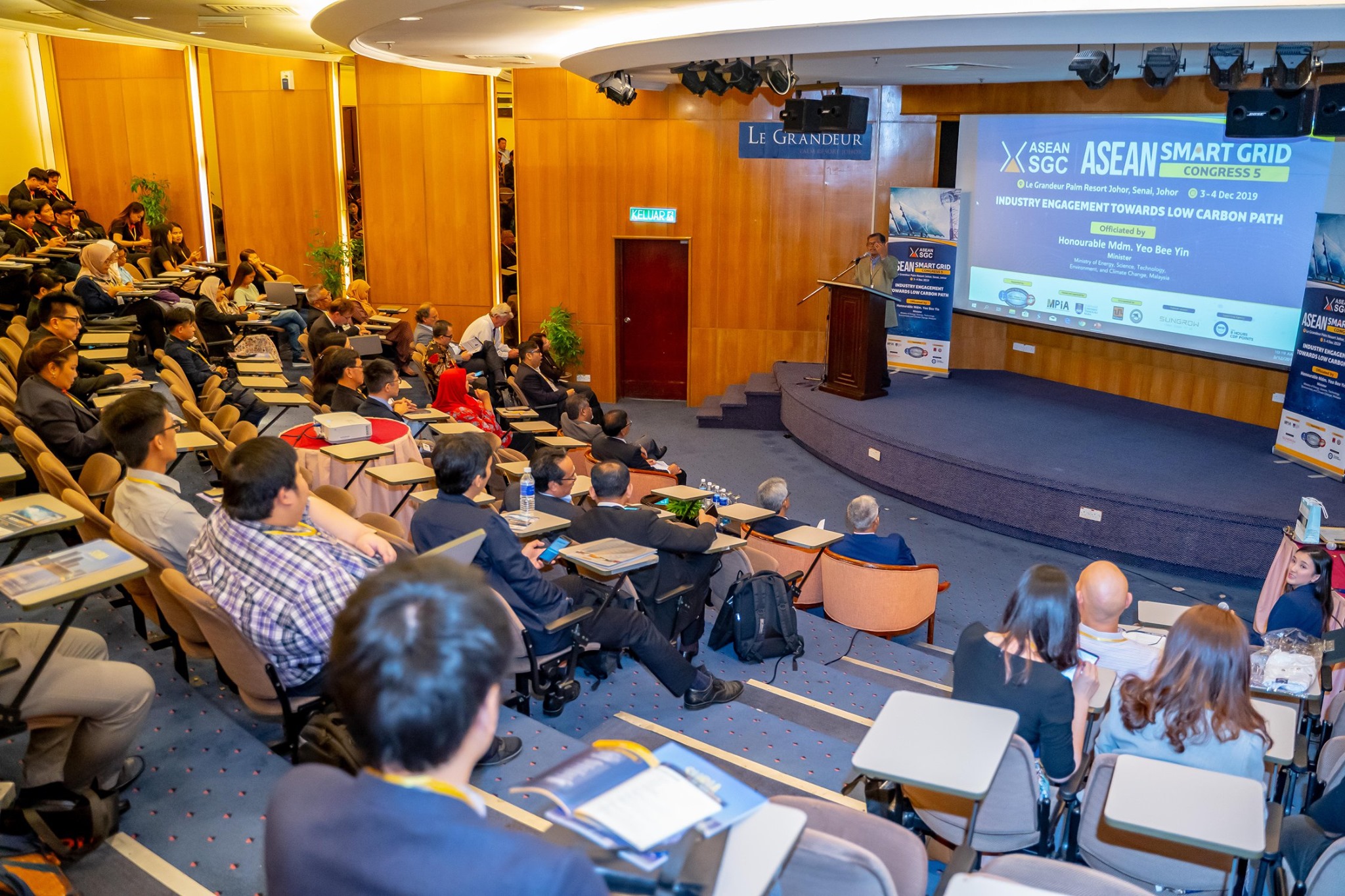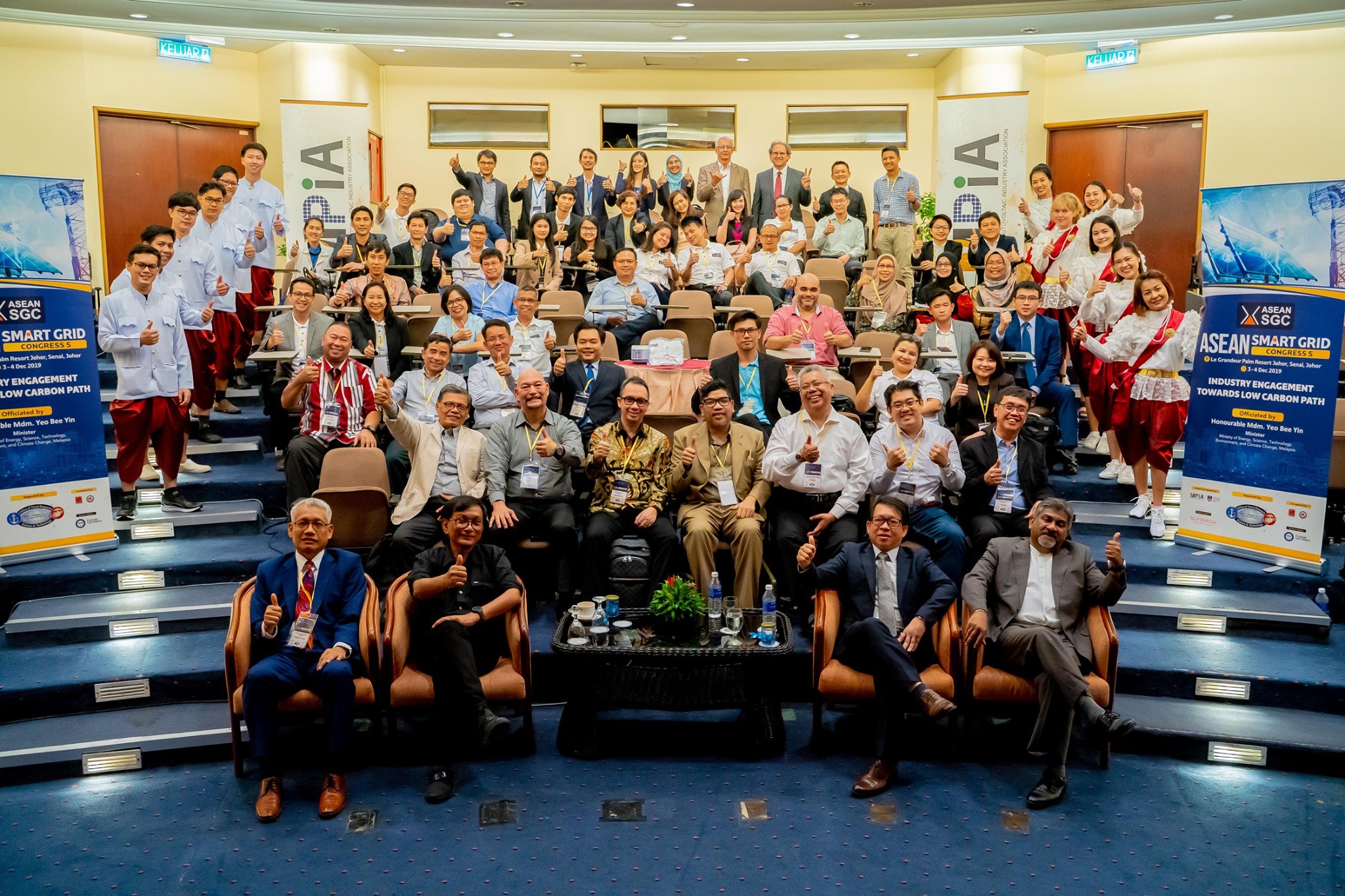Senai Johor, 4 December 2019
The ASEAN Centre for Energy (ACE) has been invited to the 5th ASEAN Smart Grid Congress (ASGC), hosted by the Malaysian Photovoltaic Industry Association (MPIA) and the Faculty of Applied Sciences, Universiti Teknologi MARA, and co-organized by the School of Renewable Energy and Smart Grid Technology (SGtech), Naresuan University, Thailand.
The congress was held in Le Grandeur Palm Resort, Senai Johor from 3 to 4 December 2019, and was opened by Datuk Ir. Ahmad Fauzi Bin Hasan, the Chairman of the Energy Commission of Malaysia.
As reflected by the theme, “Industry Engagement Towards Low Carbon Path”, it was a multidisciplinary congress whereby, the participants were from government agencies, universities, international organizations, and private companies, representing the 10 member states of the Association of Southeast Asian Nations (ASEAN).
The congress aimed to be a platform for the communities from renewable energy (RE) and smart grid technology to interlink and work together in accelerating the deployments in the Southeast Asia region.
 The Opening of the 5th ASEAN Smart Grid Congress
The Opening of the 5th ASEAN Smart Grid Congress
Dr Chan Hoy Yen, Senior Research Analyst of ASEAN Climate Change and Energy Project (ACCEPT) presented the “ASEAN Cooperation – Facilitating Involvement of Academe and Industry Players in Accelerating RE Penetration” for the Plenary Session.
On the other hand, government officials and country representatives shared the related policies and updates on smart grid development; researchers shared the status of research, development, and deployment of a smart grid; and delegates from the Japan and USA shared their best practices, ideas, knowledge, and experiences in taking the sustainability of energy industry to the next level.
 Group Photo at The 5th ASEAN Smart Grid Congress
Group Photo at The 5th ASEAN Smart Grid Congress
Also, Dr Chan was one of the panels for the dialogue of “Achieving Sustainable Development Goals (SDG) and Climate Actions (Paris Agreement): RE through Smart Grid – the Academia-Industry Energy”. She shared her thoughts and insights on the local context of climate change mitigation technologies and hence the academic-industry partnership in technology deployments in Southeast Asia, in which ACE could play a role as a network centre to link up with all players.
The discussion concluded that governments, academe, and industries need to collaborate in realizing the SDGs and the Nationally Determined Contributions (NDCs) of the Paris Agreement.
(AN/HYC) (Photo Credit: the Malaysian Photovoltaic Industry Association – MPIA)